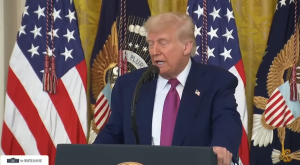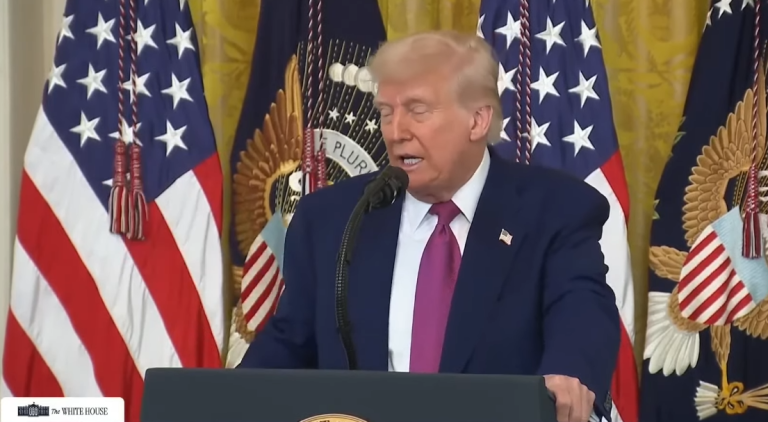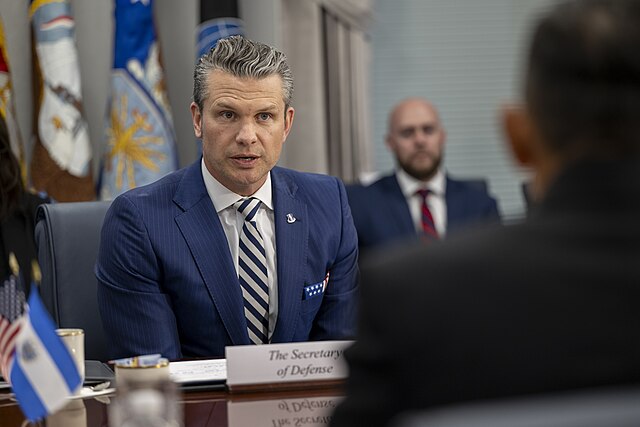The pivotal moment came when the host asked Jean‑Pierre whether she had apologized regarding comments she made defending President Biden’s mental acuity. Visibly bristling, she responded that she would not issue a yes-or-no answer, insisting instead on context. She repeated emphatically that she “woke up every day proud to be White House press secretary” and that she “doesn’t take anything back.”
When the host tried to corner her into a simple yes-or-no, Jean‑Pierre resisted, noting that no one had claimed everything was perfect but that she stood by her record. She reminded viewers that as press secretary, her role was to speak for the president, not for herself personally. When pressed further about defending Biden’s cognitive fitness, she asserted that in her daily observations, he remained sharp, engaged, and knowledgeable.
Across the exchange, she framed her defense around identity, service, and duty—identifying herself as a Black queer woman who broke barriers at the podium, and reiterating the honor she felt in that role. The interview, however, left some viewers frustrated—seeking accountability but encountering what many critics have called evasive rhetoric.
Why This Matters: Accountability vs. Political Messaging
In the realm of political communications, few things are more consequential than how one confronts past errors or controversial statements. For a former press secretary, launching a media circuit to promote a book or a new role means contending with one’s own record under scrutiny. Here are the main stakes:
1. Credibility and Public Trust
By refusing to issue a straightforward apology or admit specific regrets, Jean‑Pierre walks a narrow line: insisting she acted in good faith while implicitly acknowledging imperfection. But in media discourse, ambivalence can be perceived as evasion. In a polarized environment, many viewers interpret refusal to apologize as defiance or lack of transparency.
2. Partisan Narratives and Framing
Her framing—“I spoke for the president, not Karine Jean‑Pierre”—is standard for press secretaries. But when she now speaks about the president, that distinction blurs. Defensive posture shifts the narrative: it becomes less about what she said and more about who dares to question her integrity. In a media age saturated by soundbites, control over framing is often more important than the substance.
3. The Trouble with Nuance
Journalistic demands often drive simplicity—yes or no, true or false. Complex answers rarely satisfy soundbite-driven formats. Press secretaries, speechwriters, and political operators know this, and thus may default to qualifiers. But for many in the audience, qualifiers feel like verbal dodge. When a question is simple, a simple answer is demanded—especially when credibility is on the line.
4. Identity as Shield and Lens
Jean‑Pierre repeatedly invoked her identity (Black, queer, and historically underrepresented in her position) as a foundation for asserting her perspective. That rhetorical strategy seeks to anchor her record in symbolic progress. But in doing so, she risks deflecting critique—suggesting that criticism arises from bias rather than policy or communication. That tactic, while powerful, is also politically charged.
Critics and Supporters: The Polarizing Reception
Predictably, reactions fell along partisan lines.
-
Critics pounced on what they saw as evasive and meandering answers. Some labeled the interview one of the most awkward in recent political media—citing moments where she appeared unable to clearly articulate justifications or counterarguments.
-
Supporters argued that complex public service roles resist simplistic judgments, and that constant nitpicking about every phrase degrades political discourse. Some defended her posture, noting that scrutiny is inevitable for anyone transitioning from government service to the public stage.
-
Even among friendly observers, the broader takeaway emerged: the interview may have deepened doubts rather than dispelled them. By doubling down on rhetorical steadiness, she entrenched perceptions of unyielding partisanship rather than opening paths for reconciliation or understanding.
Strategic Risks and Rewards
What might Jean‑Pierre and her team have aimed to achieve—and what did they risk?
Rewards
-
Consolidating her base: By standing firm, she signals loyalty and conviction to progressive and Democratic audiences who expect ideological consistency.
-
Narrative control: This interview offered her an opportunity to reposition her identity and legacy on her terms, not on terms forced by critics.
-
Reinforcing historical symbolism: Emphasizing her historic role as a Black queer woman press secretary reinforces her position as a barrier-breaker in American politics.
Risks
-
Alienating undecided or moderate audiences: Those seeking nuance or contrition might view her position as rigid or unapologetic.
-
Fueling future criticism: Her statements can be replayed indefinitely in media cycles, especially by adversaries.
-
Eroding credibility in media engagements: If future interviews demand more accountability, this precedent may limit her flexibility.
How This Fits a Broader Trend
Jean‑Pierre’s exchange isn’t an isolated moment. It’s part of a larger trajectory in modern politics, where:
-
Former officials become personalities: Press secretaries, speechwriters, and administration veterans often transform into commentators, writers, or publicists. Their past statements become evergreen fodder for critique.
-
Media expectations demand accountability beyond performance: In the past, press secretaries might simply retire into the background. Now, their post-White House roles demand fresh defenses, new narratives, and continuous vetting.
-
Political polarization intensifies interpretation: When statements are ambiguous or defensive, they’re magnified and weaponized by political opponents. No answer is ever just words—it’s evidence.
In this environment, refusing to retract or apologize is both a calculated stance and a gamble. For some, it reads as strength; for others, as opacity.
What the Public Gains (and Loses)
From a civic perspective, this interview is a test case. On one hand, it forces a public reckoning with the complexity of public office, messaging, and authority. On the other hand, it illustrates how much power lies in perception.
We gain insight into how high-stakes media moments are handled and how figures try to defend legacies. But we also lose clarity, because those defending themselves know they can reframe uncertainty or ambiguity as narrative control.
In that sense, the debate is less about truth than about who controls the story.
Final Reflections
The MSNBC interview with Karine Jean‑Pierre will likely be remembered not for what she said, but for how she responded under pressure. Her steadfast refusal to apologize or retract—even under direct questioning—underscores a broader shift in political-media strategy. Public figures are less about transparent admissions and more about disciplined narratives.
Whether that approach wins trust or invites skepticism depends on the audience. For her supporters, it’s resolute loyalty. For critics, it’s deflection. And for the undecided, it’s ambiguous silence.
In any event, the moment captures the contradictions of modern public life: we demand accountability, but often punish those who try to respond with nuance. We hunger for clear answers, yet weavers of political narrative know how to thread complexity through a needle of rhetoric. And so the interview ends—not with revelation, but with an assertive refusal to retreat from the past.

Emily Johnson is a critically acclaimed essayist and novelist known for her thought-provoking works centered on feminism, women’s rights, and modern relationships. Born and raised in Portland, Oregon, Emily grew up with a deep love of books, often spending her afternoons at her local library. She went on to study literature and gender studies at UCLA, where she became deeply involved in activism and began publishing essays in campus journals. Her debut essay collection, Voices Unbound, struck a chord with readers nationwide for its fearless exploration of gender dynamics, identity, and the challenges faced by women in contemporary society. Emily later transitioned into fiction, writing novels that balance compelling storytelling with social commentary. Her protagonists are often strong, multidimensional women navigating love, ambition, and the struggles of everyday life, making her a favorite among readers who crave authentic, relatable narratives. Critics praise her ability to merge personal intimacy with universal themes. Off the page, Emily is an advocate for women in publishing, leading workshops that encourage young female writers to embrace their voices. She lives in Seattle with her partner and two rescue cats, where she continues to write, teach, and inspire a new generation of storytellers.









